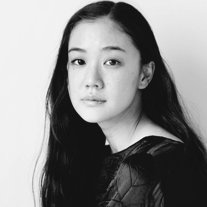
Thrilling and sensitive take on justice
I generally don't watch dramas classified as thrillers, as they tend to be overly dramatic, focus on cliffhangers and twists, while character development and the overall message takes a back seat. Not here. Via a man's quest for justice (and shall we say, atonement?) it asks viewers more questions than it provides answer for. What is justice when people who carry out justice are just humans like the rest of us? If they're also human, how can justice be black and white? Who decides what is just or unjust? Is it ok to pursue justice at all cost, even at the expense of violating the law itself? Akizumi is not THAT gray of a hero, but he's definitely much more interesting than your typical protagonist.My favorite part of the drama is the portrayal of two (three?) parallel father/daughter relationship, and the characters are so much more relatable because they don't exist in a law enforcement/legal vacuum. Their lives outside of it are fairly fleshed out (interesting, except for Akizumi's) as well as their relationship with their loved ones.
The cast is amazing from everyone in the law office to the prosecutor/law enforcement side, with perhaps the exception of Datehara, and I do wish he didn't act in such an exagerrated way. Judge Seko's arc is also very fleshed out and adds another layer to the themes (women's struggles in fields predominantly occupied by men).
I also LOVE how there's no romance which would have really diluted the story. Very much appreciated. The music in general and theme song Hanataba (milet) is very suiting and still haunts me.
Was this review helpful to you?
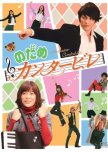
Nodame is the perfect drama
A comedy about music, friendship, and relationship (not just romance but also that of mentors and mentees). Couldn't have imagined a better fit for the roles. It's not my first Japanese drama but is the drama to keep me going (I wanted to quit Jdrama years back after Hana Yori Dango, lol) When I'm down, I rewatch it. When I'm happy, I rewatch it. But what's remarkable about it, 14 years after my first watch, is the youthful energy that's still resonating with me even after those college years. Full of life, and joy, and hope for the future, there's no cliche lecturing, no relationship drama, just a bunch of young people and their pursuit of music.Was this review helpful to you?
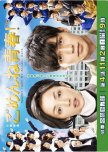
Who did it? Who knows! How much do your past mistakes really matter?
Very cute and fun drama by Kudo Kankuro (you know you will have a blast laughing if he wrote it). I watched it a long time ago and while the key relationship/past mistake arc didn't leave a lasting impression on me, I love the interaction between the boy/girl classes. The way teenage relationships and feelings are portrayed is so accurate. This is also one of Kudo's most gentle dramas - there are plenty of tender moments between the characters (won't reveal to prevent spoilers). Kuroshima Yuina was a revelation here. Mitsushima Hikari is as good as ever, but I feel like her character didn't have a lot of room for her acting prowess. I'm not a hardcore fan of Nishikido Ryo (he was super popular during the 1 litre of tears days) but he acted with a lot of sensitivity here. A great watch.Was this review helpful to you?
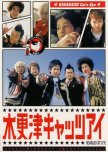
Crazy fun and heartwarming story of friendship by the one and only Kudo Kankuro
If you've seen one Kudo Kankuro's drama, you know his style. Exagerrated comedy, quirky characters, jokes borderline (or straight up) offensive. But there's so much heart in a lot of his dramas, and Kisarazu's is one of the best. A group of friends tries to find meaningful things to do when they find out one of their friends has cancer and may die at any time (there's VERY few moments of grief here, and those moments are very brief. It is NOT melodramatic). Which means, doing crazy things that teenage boys (and more grown-up men) like to do. Their adventures are insane and made me tear up from laughing, but in the end the bonds between the guys are what make it shine. Yes it is crazy, yes it is fun, and can be hard to follow at times (as typical of earlier Kudo Kankuro's works), but it's well worth a watch.Was this review helpful to you?
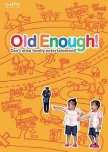
The sweetest show everrrrr
Everyone needs some sweet innocence, genki energy in their life and this show is it. Regardless of whether you have children, you'll enjoy watching the kids (some of them as young as 3) enthusiastically complete their task, because when you're 3, you're not a pessimistic misanthrope who frowns at everything in life. Watch it over dinner. Watch it before you go to sleep. End the day on a positive note. You will not regret watching it.It's also really cool to see how safe Japan is and how the culture really encourages independence from an early age. It's a good concept but not sure if it can be implemented elsewhere because of safety concerns.
Was this review helpful to you?
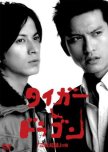
THE quintessential Japanese drama
I've been watching Japanese dramas since 2008, and til this day no drama has replaced Tiger & Dragon as THE quintessential Japanese dorama for me. The way Kudo Kankuro wrote it was unbelievable. He somehow managed to weave rakugo stories into real life stories - but they still make sense, end the story on the closing punchline (arguably the most important part of a rakugo story), while still having so much to say about family, friendship, arts, and finding one's true self. It would probably have been more popular if it wasn't slightly inaccessible - without paying attention closely, one might be utterly confused and give up on it an episode in (my husband refused to watch it after 1 episode, saying it was too confusing). But, as one gets over the first few episodes and gets used to the structure, it's such a rewarding drama.I have other Kudo Kankuro dramas I've enoyed (Kisarazu Cat's Eyes, Gomen ne seishun, and his latest Extremely Inappropriate), but I don't think he can ever outdo himself in this case. Tiger & Dragon was his peak. Heck, Tiger & Dragon is still THE peak for Japanese dramas for me.
Was this review helpful to you?

Pleasantly surprised at how authentic it is
Being an American production, I was worried about a repeat of Memoir of a geisha, where geishas speak English and are played by Chinese actresses. Not here. Everything from costumes to language was Sengoku era Japan. If anything, I really didn't think the Pacific Northwest (filming location) resembled Japan at all lol but given the circumstances, I understand why it's done.Out of all the characters, I didn't care for Blackthorne. I do appreciate an outsider's perspective, but without him the story wouldn't have been drastically different. Really enjoyed the portrayal of Mariko (Hosokawa Gracia in history) and Toranaga (Tokugawa Ieyasu in history). Toranaga is EXACTLY what I imagine Ieyasu to look like and I'm not sure if we'll ever get another Ieyasu that close to my imagination (I regularly watch taiga - Japanese 50-episode long historical dramas).
People lament the lack of a "final" battle, but IMO it would have been very ordinary for that to happen (though pleasant to watch I'm sure). I remember watching GoT final battle and that was just a borefest, I was wondering when the killing would end. That battle did nothing for me emotionally. The plot deciding for no final battle was the correct decision IMO, a lot of the times battles are not won on the field but behind the scene, within political intrigues and people manipulation, and Shogun got all of that right.
Was this review helpful to you?

Frankly, it's quite alright
I've never been a "big budget" drama/movie type of person, and Vivant hasn't changed my opinion on that. You can have the biggest budget, but emotional punches and memorable scenes don't need to take place in the vast Mongolian landscape or Hokkaido snow. It can happen in a small room anywhere.That being said, Mongolia was beautiful and the landscape was a joy to watch. Unfortunately this is not a documentary or travel docuseries so it really didn't matter to me. The happenings in Mongolia *cough, Balka* were not that exciting for me personally. I really enjoyed the financial scams within the corporate Japan world, that part of the drama made me on the edge of my seat.
Waste of acting potential for Nikaido Fumi, one of Japan's most brilliant actress. The doctor role was frankly annoying and she had zero chemistry with Sakai Masato.
The worst part of the drama is the revelation at the end (will not reveal to not spoil any plot) and the preachy part about how moral Japanese people are. This is coming from a Japanophile. People anywhere can be good, bad, moral, immoral, amoral.
Was this review helpful to you?
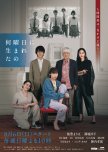
Riveting story-telling and brilliant dialogues
Brilliant storytelling and the twists and turns take you by surprise - by the time half the drama rolled around I wasn't quite sure where it's heading. I do like that none of the twists was really "shocking", they're rather mundane daily life things. As a drama, it was very entertaining to watch and you're always either on the edge of your seat or LOL'ing at Kumon Ryuen's inner hikikomori speaking out.I do wish the romance here went in a different direction, or maybe if the romance unfolds more slowly and in a different manner I would have preferred it more. Overall, it lacks those emotional punches that make it a must watch in my book, but still very worthwhile entertainment. Nojima Shinji's dialogues are brilliant and the acting is solid all around.
Was this review helpful to you?

Even Sakamoto Yuji messes up
This drama has all the potential to be a great drama. Brilliant writer with a beautiful setting (Hokkaido/Fukushima), star-studded cast (who can all act), beautiful OST. But none of those things could have salvaged the really really weird, convoluted plot. Way too many characters vying for the "main character/main supporting character" spot, I don't know if it's because they're all prominent actors(ress) that he felt compelled to tell all their stories - which means no one's story got told well.The relationships here are so convoluted for no reason. By the time the 100th love triangle popped up I was so done, I thought surely this has to be a joke. Multiple love triangles/interest CAN work well as shown in Sakamoto 's very own Quartet later that year, but they have to be lighthearted and cannot be serious the way ItsukaKoi was, otherwise it's just a tangled mess.
The acting is all solid, and I really enjoyed Takahata Mitsuki in particular, but even that and the beautiful OST could not possibly have saved these convoluted shenanigans.
Was this review helpful to you?
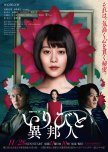
As visually beautiful and haunting as its subject matter
It's been a while since I watched Iribito now, and while I don't remember all the details very well, I can still visualize how beautiful it is as a work of art. So many frames stand out like individual paintings, which is the subject of the dramas. I'm not into painting/paintings but really appreciate people's dedication to arts, sometimes at the expense of their own lives.The Kyoto scenery, the visuals, and yes, Naho's kimono outfits all make it a worthwhile drama. Sometimes I turn it on just to stare at the beautiful frames.
Was this review helpful to you?

Fresh take on a (THE) controversial figure
Akechi Mitsuhide is possibly the most controversial but also mysterious figure of Sengoku era. "Why did he do it?" - we'll never know. As often the case in history, there are usually no heroes or villains, just winners and losers, and winners write history. Imagine, if Mitsuhide beat Toyotomi Hideyoshi at the Battle of Yamazaki and became shogun, he would have become "one who deposed of the bloodthirsty (true) dictator Nobunaga". But that is not what happened, and Mitsuhide is forever known as the betrayer of his lord. Kirin provides a fresh take on this figure (perhaps a little too idealistic for my liking, but that's a minor gripe), one who wants to uphold the bakufu, seek peace, and definitely did not approve of Nobunaga's various violent shenanigans. I particularly enjoyed the arcs of Saito Dosan, Ashikaga Yoshiteru (and to a lesser extent, Yoshiaki), and Matsunaga Hisahide. These are characters who haven't been provided with enough screen time in previous taiga (as far as the ones I've watched), and it's great to see their stories play out in the background.Mitsuhide's love arcs are minimal, as per usual taiga standard, but his wife Hiroko as a real historical figure was known to be a devoted wife, and he was equally devoted to her. It was refreshing to see a general/daimyo appreciate his wife in the modern sense of partnership and not just a political tool/baby popping machine.
Kirin spends a lot of time on fictional characters of the lay people class - doctors, merchants, performers. These parts can drag a little, but I really enjoyed watching "the real world" outside of major historical Sengoku figures. Koma's role was involved in way too many important things/with way too many important people and that irked me a little, but overall I didn't mind the ordinary citizens' role here. In history they were probably used as communicators/spies and we'll never know their real names or identities because of the nature of their work (like Kikumaru), but that doesn't mean they didn't exist/didn't play pivotal roles in these conflicts.
Acting was top notch. I discovered Hasegawa Hiroki via Antihero (another great watch) but became a fan via Kirin. His Mitsuhide is always dignified but also often conflicted, as I suspect many people were in that time - where the wrong course of action means death, but it was always difficult to know what's right or wrong, and every decision is a wager. Mukai Osamu as Ashikaga Yoshiteru showed a beautifully tragic figure who had ambition, desire to better the world, ability (he was a renown swordsman), but was born into the wrong family at the wrong time. Motoki Masahiro is enigmatic and a powerful screen presence; his Saito Dosan is clearly a controversial figure, but is shown here to be very honest with himself and knows who he is/upholds his integrity (or what he thinks is his integrity) and proud of his humble background. These were my favorite characters of the series, but kudos to others like Yoshida Kotaro as the cunning but strangely philosophical Matsunaga Hisahide, and despite not too much screen time, Ono Machiko is enchanting as always as the mysterious but influential Iroha Dayu. I must admit I had a hard time imagining Sometani Shota as Nobunaga, but his Nobunaga had a good course of transformation, to a brash but idealistic youth, to bloodthirsty dictator far removed from reality. I'm rewatching Gunshi Kanbei right now and must say, I actually prefer his version of Nobunaga to Eguchi Yosuke's Nobunaga, who's far more stoic and less interesting.
Kirin ga kuru is a bit more controversial than other taigas, but that's also what makes it special. Others think it's "revisionist history", I simply think of it as, everyone has a story and perspective. When you look at it from Mitsuhide's perspective, this is his story.
Was this review helpful to you?

Wonderful slice of life/family drama that doesn't take itself too seriously
A heartwarming drama about a man who doesn't leave his room. Together with his mom's dedication and the abrupt forced interaction with his sister's family including an angsty tweenager and an energetic toddler, he manages to finally - well - leave his room. The relationship between Masaharu and his niece/nephew is one of the central stories, but my favorite part is Masaharu's relationship with his mom. The joy mom gets when her son finally sees the sunlight for the first time in years got me.There are little to no conflicts, and no happy ending here other than life continues on as usual, but that doesn't mean today isn't a better day than yesterday. You know it's a great slice of life with no melodrama when the most dramatic scenes are those of the R&D department that makes snacks for kids. The tomatoessssss.
Was this review helpful to you?

Fun and heartwarming with a well-rounded cast
Remolove is a very cute and mostly drama-free story about two people who started talking online during COVID, only find out they work in the same office. Keeping true to its rom-com goal, there's very little drama in terms of love triangles (there are those but they're really not important plotwise). Besides the main love story, I thoroughly enjoyed watching all the interactions between the characters, especially the side story of Asanari-buchou, his son, and Tomichika the psychologist. Daiki and Shiori/her dad also make a great arc, and every time Daiki goes to break the fourth wall it's hilarious. I'd classify Remolove more as slice of life than romance, but this is as cute and heartwarming without going into melodramatic territory as it gets. One of my all-time favorite dramas!Was this review helpful to you?
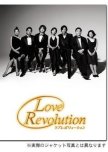
Quite possibly the worst J-drama I've watched in 15 yrs
And it's such a shame because the cast is so lovely. Esumi Makiko is GORGEOUS and a good actress. Yonekura Ryoko is so sweet and charming here. But that doesn't matter because every single character has such illogical behaviors, no one communicates with anyone else, and by the 7th episode I was already sick of all of the love pentagons. There is so much drama, misunderstanding, wishy washy back and forth, that I stopped caring for all of the characters. Usually every drama has one or two salvageable characters. Suga is not likeable in the beginning, but I can't believe in the end, he's the least terrible character. Maybe people really do behave like this in real life, but that's not a reality I've ever experienced and am sure glad not a reality I will ever have to deal with.I went in not quite expecting something as brilliant or fun as Long Vacation or Quartet, but didn't think it was going to be this melodramatic and unnecessary. Hard pass.
Was this review helpful to you?

